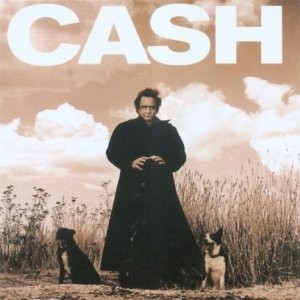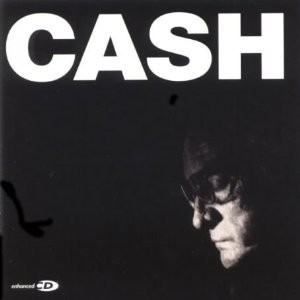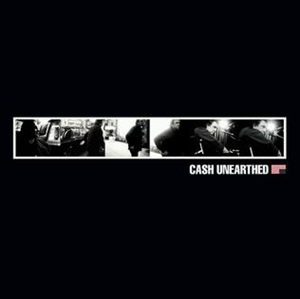 What is the optimal size of a record collection? You might as well ask what is the sound of one hand clapping. It's a deep and philosophical matter. However, the size of a record collection also has practical implications. I have 5 913 cds according to my meticulously maintained Discogs account. Is this an asset or a liability? I used to think it was an asset. I pictured myself sitting in a comfortable armchair giving attentive listening a new and deeper meaning as a retiree. Now, I'm not so sure anymore. It might be a liabilty. I picture my kids, after my demise, driving to the recycling centre with the less valuable part of my record collection, cursing their hoarding father. Now and then I think that I should get rid of the collection, at least some part of it. Not only will this take the load off (no pun intended) from my kids, but it will also make it easier on myself. Half of the collection consists of classical cds released on prestigious labels like Deutsche Grammophon, Decca, Sony and Philips. Some of them were bought full-priced back in the days, but most of them I have paid as little as $0,2-1 for. I don't know what the original plan was, but I have felt sorry for them standing there abandoned in the thrift store. We can leave the classical albums aside. This department will need special handling. Over to the 3 000 pop, rock, jazz, blues and country albums (and the 583 gothic country albums). Now, it gets hard. Which albums will survive the purge? The thing that makes it so hard is that the record collection has been built up over the years, layer by layer. Preferences change over time. Downsizing or rightsizing is time-dependent and context-dependent, but I'm the constant factor. We will see how this plays out.
What is the optimal size of a record collection? You might as well ask what is the sound of one hand clapping. It's a deep and philosophical matter. However, the size of a record collection also has practical implications. I have 5 913 cds according to my meticulously maintained Discogs account. Is this an asset or a liability? I used to think it was an asset. I pictured myself sitting in a comfortable armchair giving attentive listening a new and deeper meaning as a retiree. Now, I'm not so sure anymore. It might be a liabilty. I picture my kids, after my demise, driving to the recycling centre with the less valuable part of my record collection, cursing their hoarding father. Now and then I think that I should get rid of the collection, at least some part of it. Not only will this take the load off (no pun intended) from my kids, but it will also make it easier on myself. Half of the collection consists of classical cds released on prestigious labels like Deutsche Grammophon, Decca, Sony and Philips. Some of them were bought full-priced back in the days, but most of them I have paid as little as $0,2-1 for. I don't know what the original plan was, but I have felt sorry for them standing there abandoned in the thrift store. We can leave the classical albums aside. This department will need special handling. Over to the 3 000 pop, rock, jazz, blues and country albums (and the 583 gothic country albums). Now, it gets hard. Which albums will survive the purge? The thing that makes it so hard is that the record collection has been built up over the years, layer by layer. Preferences change over time. Downsizing or rightsizing is time-dependent and context-dependent, but I'm the constant factor. We will see how this plays out.

Touring schedule: Below you will find the touring schedule.
| Date | Venue |
|
Thu 6 Nov 2025 with Bob Wayne |
Hoogeveen, NL - Het Podium |
 Johnny Cash a.k.a. "The Man in Black" is widely recognized as an icon of American music. Even an icon has his highs and lows. His record sales had suffered during the late 1970s and 1980s. When Cash met American record producer Rick Rubin things took a new direction. This also marked the beginning of a career resurgence for him. Johnny Cash was discovered by a new audience. There are six albums in the American series. The last album "American VI: Ain’t No Grave" was posthumously released on February 26, 2010. This would have been Cash’s 78th birthday. Johnny Cash didn't know all the songs that Rick Rubin suggested, but he made fantastic interpretations of them. All the recordings that were made didn't make it to the albums. "Unearthed" is a box set (5 cds). It was released on November 25, 2003, two months after Cash's death. The album was compiled by Cash and Rick Rubin, who also produced the set. The first three discs feature outtakes and alternate versions of songs recorded for first four albums. The fourth disc features gospel songs that Cash first learned from his mother as a child. The fifth disc is a best-of compilation of the first four American albums. The Rolling Stone wrote: "The American Records were stark, stripped-down, mostly acoustic meditations on the more apocalyptic side of Cash’s persona." For once, I agree with this awful and overbearing magazine.
Johnny Cash a.k.a. "The Man in Black" is widely recognized as an icon of American music. Even an icon has his highs and lows. His record sales had suffered during the late 1970s and 1980s. When Cash met American record producer Rick Rubin things took a new direction. This also marked the beginning of a career resurgence for him. Johnny Cash was discovered by a new audience. There are six albums in the American series. The last album "American VI: Ain’t No Grave" was posthumously released on February 26, 2010. This would have been Cash’s 78th birthday. Johnny Cash didn't know all the songs that Rick Rubin suggested, but he made fantastic interpretations of them. All the recordings that were made didn't make it to the albums. "Unearthed" is a box set (5 cds). It was released on November 25, 2003, two months after Cash's death. The album was compiled by Cash and Rick Rubin, who also produced the set. The first three discs feature outtakes and alternate versions of songs recorded for first four albums. The fourth disc features gospel songs that Cash first learned from his mother as a child. The fifth disc is a best-of compilation of the first four American albums. The Rolling Stone wrote: "The American Records were stark, stripped-down, mostly acoustic meditations on the more apocalyptic side of Cash’s persona." For once, I agree with this awful and overbearing magazine.
About the list: For your listening pleasure. I have put together a 80 minute cd compilation, so you don't have to. It's all there. Balanced, weighted and calibrated.
|
No |
Cover | Song | Album |
Notes |
|
1 |
 |
The Beast In Me |
American Recordings |
Written by Nick Lowe. This song has all the necessary attributes. Slow, mournful and open-hearted. The lyrics are pitch-black. "The beast in me / Is caged by frail and fragile bars". |
|
2 |
 |
Thirteen |
American Recordings |
Written by Glenn Danzig (for Johnny Cash) in 20 minutes. A mournful dialogue of a life blighted by bad luck and misery. "I was born in the soul of misery / And I never had me a name / They just give me a number when I was young". |
|
3 |
 |
Redemption
|
American Recordings |
Written by Johnny Cash. A hymn about being freed from captivity through the blood of Christ. Jesus was pierced by a spear. "From his hands it came down / from the side it came down / from the feet it came down and ran to the ground". |
|
4 |
 |
Spiritual
|
Unchained |
Written by Josh Haden. Original music written by Charlie Haden. This song is about a man who has lost it all and only has God left in him. "Jesus / I don't wanna die alone / Jesus, oh Jesus / I don't wanna die alone". |
|
5 |
 |
Southern Accents |
Unchained |
Written by Tom Petty. The song refers to both the literal Southern drawl of the narrator and the deeper, symbolic meaning of Southern identity, pride, and the often-contradictory cultural aspects of the American South. "There's a southern accent, where I come from". |
|
6 |
 |
Unchained
|
Unchained |
Written by Jude Johnstone. The song is a prayer for liberation from physical and spiritual burdens. "I am weak / Oh, I know I am vain / Take this weight from me / Let my spirit be unchained". |
|
7 |
 |
Solitary Man |
American III: Solitary Man |
Written by Neil Diamond. The song describes a man who, after failed relationships where partners left him for his friends, chooses to remain a "solitary man". "I'll be what I am / A solitary man / Solitary man". |
|
8 |
 |
One |
American III: Solitary Man |
Written by U2. The song explores themes of unity, division, and the complexity of human relationships, particularly in times of struggle and hardship. "Did I disappoint you? / Or leave a bad taste in your mouth? / You act like you never had love / You want me to go without". |
|
9 |
 |
I See A Darkness |
American III: Solitary Man |
Written by Bonnie 'Prince' Billy. The lyrics convey a sense of darkness, despair, and mortality. "Did you know how much I love you? / Is a hope that somehow you / Can save me from this darkness". |
|
10 |
 |
The Mercy Seat |
American III: Solitary Man |
Written by Nick Cave. The song tells the story of a man about to be executed by the electric chair. In this version (as opposed to Cave's) you can actually hear the lyrics. "And the mercy seat is waiting / And I think my head is burning". |
|
11 |
 |
Wayfaring Stranger |
American III: Solitary Man |
Traditional. Perfection is achieved not when there is nothing more to add, but when there is nothing left to take away. This version is ranked no. 1 on my list 10 best versions of "Wayfaring Stranger". "There is no sickness, toil, nor danger, In that bright world to which I go". |
|
12 |
 |
The Man Comes Around |
American IV: The Man Comes Around |
Written by Johnny Cash. Stuffed with biblical references. "And I heard, as it were, the noise of thunder / One of the four beasts saying, / 'Come and see.' and I saw, and behold a white horse" |
|
13 |
 |
Hurt
|
American IV: The Man Comes Around |
Written by Nine Inch Nails. The song deals with drug addiction and self-destruction. Cash's version deals with regret, loneliness, and reckoning. "I hurt myself today / To see if I still feel / I focus on the pain / The only thing that's real". |
|
14 |
 |
I Hung My Head |
American IV: The Man Comes Around |
Written by Sting. The song deals with accidental violence and its fatal consequences. Very well to be sorry now. "Then it came to me yeah just what I've done / And all for no reason, just one piece of lead". |
|
15 |
 |
Personal Jesus |
American IV: The Man Comes Around |
Written by Depeche Mode. It's a song about being a Jesus for somebody else, someone to give you hope and care. The song is open to many interpretations. Johnny Cash meant it literally. "Your own, personal, Jesus / Someone to hear your prayers / Someone who cares". |
|
16 |
 |
Streets of Laredo |
American IV: The Man Comes Around |
Traditional. In the song a dying ranger tells his story to another cowboy. "Come sit down beside me and hear my sad story, / For I'm shot in the chest, and today I must die". |
|
17 |
 |
God's Gonna Cut You Down |
American V: A Hundred Highways |
Traditional. The lyrics warn evildoers that they cannot avoid God's judgment. Great arrangement. "He spoke to me in the voice so sweet / I thought I heard the shuffle of the angel's feet" |
|
18 |
 |
Further Up On the Road
|
American V: A Hundred Highways |
Written by Bruce Springsteen. This version is better than the original. The song is about a man who finds himself experiencing the darkness on the edge of town. "Where the road is dark, and the seed is sowed / Where the gun is cocked, and the bullet's cold". |
|
19 |
 |
Four Strong Winds |
American V: A Hundred Highways |
Written by Ian Tyson.The song has a clear Canadian context and subtext, including an explicit mention of the province Alberta as well as references to long, cold winters. "Four strong winds that blow lonely / Seven seas that run high". |
|
20 |
 |
Ain't No Grave
|
American VI: Ain't No Grave |
Written by Claude Ely. Recorded shortly before Johnny Cash's death in September 2003. Majestic arrangement. "There ain’t no grave gonna hold my body down / When I hear the trumpet sound / Gonna get up outa the ground". |
|
21 |
 |
Redemption Day |
American VI: Ain't No Grave |
Written by Sheryl Crow. "I've wept for those who suffer long / But how I weep for those who've gone / In rooms of grief and questioned wrong / But keep on killing". |
|
22 |
 |
Redemption Song |
Unearthed |
Written by Bob Marley. From the cd box set "Unearthed" featuring outtakes and alternate versions of songs and more. "How long shall they kill our prophets / While we stand aside and look? / Ooh, some say it's just a part of it / We've got to fulfill the book". |
 "The world might be changing, but I ain't". The man behind these defying words is Zeb Macahan. He was a mountain man, trapper/trader, and scout working for the U.S. Army in the Indian Territories in the television series "How the West Was Won". Zeb Macahan had capacity to do violence. Mountain mens, trappers/traders and scouts are now extinct. Next in line for extinction are music critics. I think we all can agree upon that music critics are a dying breed. You don't see too many reviews anymore. AI-generated playlists are here and have changed how we listen to music. Some people say that music critics are just failed musicians. And writing about music is their revenge for the shitty cards they have been dealt with. That's not entirely true. I will miss the funtion - as such - which analyzes, evaluates, and provides opinions. However, I have never come across a music critic with a perfect compass. Many critics can't write and few understand the subject matter. There are many things to get irritated about. For example, the inconsistency, shallowness and the tiresome critic lingo. And all the ranting, dissing and copy-pasting. Wait a minute, this sounds like a perfect description of me. I namely live by the motto of Zeb Macahan. I know what I like. And I like what I know.
"The world might be changing, but I ain't". The man behind these defying words is Zeb Macahan. He was a mountain man, trapper/trader, and scout working for the U.S. Army in the Indian Territories in the television series "How the West Was Won". Zeb Macahan had capacity to do violence. Mountain mens, trappers/traders and scouts are now extinct. Next in line for extinction are music critics. I think we all can agree upon that music critics are a dying breed. You don't see too many reviews anymore. AI-generated playlists are here and have changed how we listen to music. Some people say that music critics are just failed musicians. And writing about music is their revenge for the shitty cards they have been dealt with. That's not entirely true. I will miss the funtion - as such - which analyzes, evaluates, and provides opinions. However, I have never come across a music critic with a perfect compass. Many critics can't write and few understand the subject matter. There are many things to get irritated about. For example, the inconsistency, shallowness and the tiresome critic lingo. And all the ranting, dissing and copy-pasting. Wait a minute, this sounds like a perfect description of me. I namely live by the motto of Zeb Macahan. I know what I like. And I like what I know.
 Listening to gothic country music takes it toll. Now and then, I have to cleanse my mind to stay sharp and focused. It's similar to neutralizing your taste buds before wine tasting. The best way is to play something well-produced, good-sounding and slick. Like Donald Fagen's "The Nightfly" from 1982. Hifi dealers who are in the process of selling high-end stereos to audiophiles put on this album. The stereo will practically sell itself. The stereo site Headphonesty concludes: "The Nightfly delivers pristine sound that’s become legendary. The production is ultra-clean with deeply layered arrangements, ultra-low noise floor, and a smooth, airy top end. On high-fidelity gear, you can pick out every subtle keyboard riff and backing vocal… This album’s sparkling production and musical sophistication secure its spot on every “best sounding” list." Furthermore, Headphonesty regards the original Warner Bros. CD (which I got) as excellent. After listening to this album (or any Steely Dan album) you can cross over to the dark side again. You are cleansed and redeemed.
Listening to gothic country music takes it toll. Now and then, I have to cleanse my mind to stay sharp and focused. It's similar to neutralizing your taste buds before wine tasting. The best way is to play something well-produced, good-sounding and slick. Like Donald Fagen's "The Nightfly" from 1982. Hifi dealers who are in the process of selling high-end stereos to audiophiles put on this album. The stereo will practically sell itself. The stereo site Headphonesty concludes: "The Nightfly delivers pristine sound that’s become legendary. The production is ultra-clean with deeply layered arrangements, ultra-low noise floor, and a smooth, airy top end. On high-fidelity gear, you can pick out every subtle keyboard riff and backing vocal… This album’s sparkling production and musical sophistication secure its spot on every “best sounding” list." Furthermore, Headphonesty regards the original Warner Bros. CD (which I got) as excellent. After listening to this album (or any Steely Dan album) you can cross over to the dark side again. You are cleansed and redeemed.
